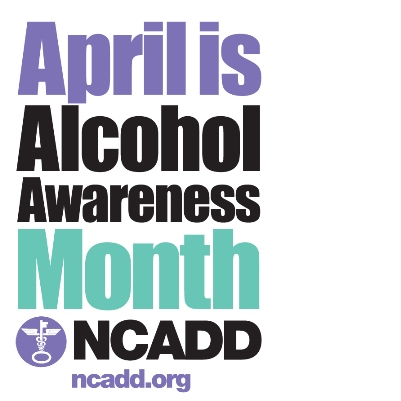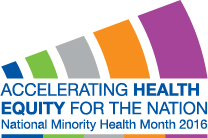
Alcohol Awareness Month
According to the NCADD:
“Alcohol is the most commonly used addictive substance in the United States: 17.6 million people, or one in every 12 adults, suffer from alcohol abuse or dependence along with several million more who engage in risky, binge drinking patterns that could lead to alcohol problems.
More than half of all adults have a family history of alcoholism or problem drinking, and more than 7 million children live in a household where at least one parent is dependent on or has abused alcohol.
Alcohol abuse and alcoholism can affect all aspects of a person’s life. Long-term alcohol use can cause serious health complications, can damage emotional stability, finances, career, and impact one’s family, friends and community.
Facts About Alcohol:
- 88,000 deaths are annually attributed to excessive alcohol use
- Alcoholism is the 3rd leading lifestyle-related cause of death in the nation
Alcoholism has little to do with what kind of alcohol one drinks, how long one has been drinking, or even exactly how much alcohol one consumes. But it has a great deal to do with a person’s uncontrollable need for alcohol. Most alcoholics can’t just “use a little willpower” to stop drinking. The alcoholic is frequently in the grip of a powerful craving for alcohol, a need that can feel as strong as the need for food or water. While some people are able to recover without help, the majority of alcoholics need outside assistance to recover from their disease. Yet, with support and treatment, many are able to stop drinking and reclaim their lives.”
- Are you addicted? Take the quiz
- Frequently Asked Questions
- 2016 NCADD Guide
- Sample Alcohol Awareness Month announcement
- Sample Tweets
- Links & Resources
- April 7 is National Alcohol Screening Day

National Minority Health Month 2016
The theme for 2016 is “Accelerating Health Equity for the Nation.” We invite all across the nation to join with the HHS Office of Minority Health to raise awareness of the health disparities that continue to affect racial and ethnic minorities and how we are working together to accelerate health equity.
- Follow on Facebook
- Follow on Twitter English or Spanish
National Child Abuse Prevention Month
A time to acknowledge the importance of families and communities working together to prevent child abuse and neglect, and to promote the social and emotional well-being of children and families. During the month of April and throughout the year, communities are encouraged to share child abuse and neglect prevention awareness strategies and activities and promote prevention across the country. In recognition of the 40th anniversary of the Child Abuse Prevention and Treatment Act, we have designed a historical timeline of significant moments in child abuse prevention in the United States.
National Distracted Driving Awareness Month
Thousands have died in car crashes involving cell phone use. New technology allows us to make phone calls, dictate texts or emails and update social media while driving – all actions that are proven to increase crash risk. The National Safety Council observes April as Distracted Driving Awareness Month to draw attention to this epidemic. NSC wants empower you to put safety first and Take Back Your Drive.
Currently, nearly 124,000 men, women and children are awaiting organ transplants in the United States. Learn the Facts.
Other Health Observances for April
- National Autism Awareness Month
- Sexual Assault Awareness Month
- Youth Sports Safety
- Irritable Bowel Syndrome
4/3 – 4/9 – National Window Safety Week
4/4 – 4/10 – National Public Health Week
4/7 – World Health Day 2016: Beat diabetes
4-10 – National Youth HIV & AIDS Awareness Day
4/16 – 4/23 – National Infant Immunization Week
4/24 – World Meningitis Day
4/25 – World Malaria Day
4/28 – Workers Memorial Day
